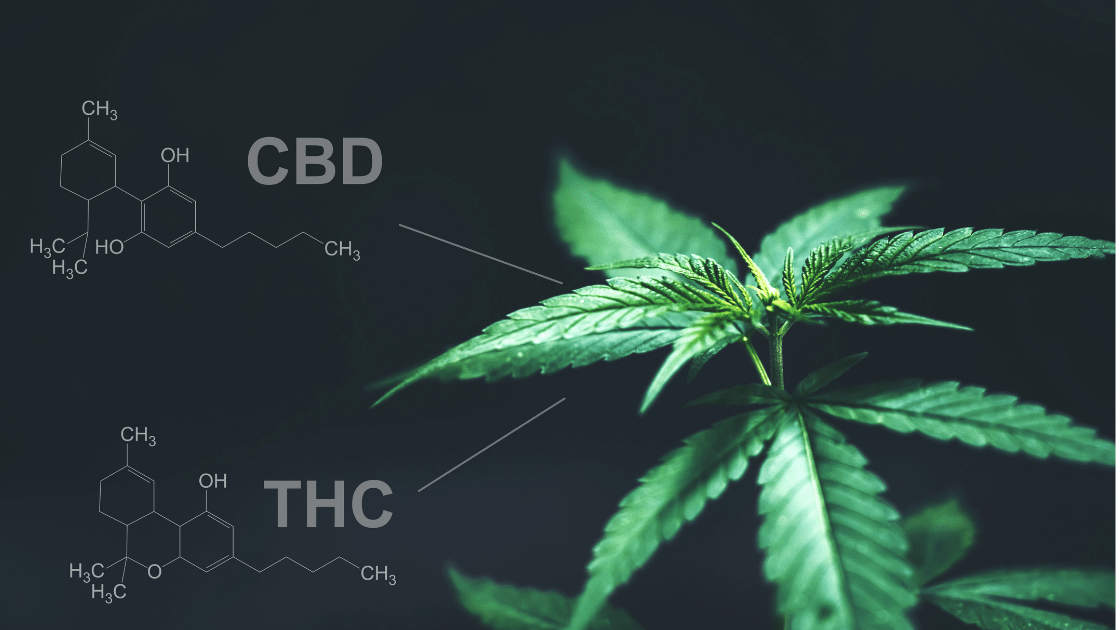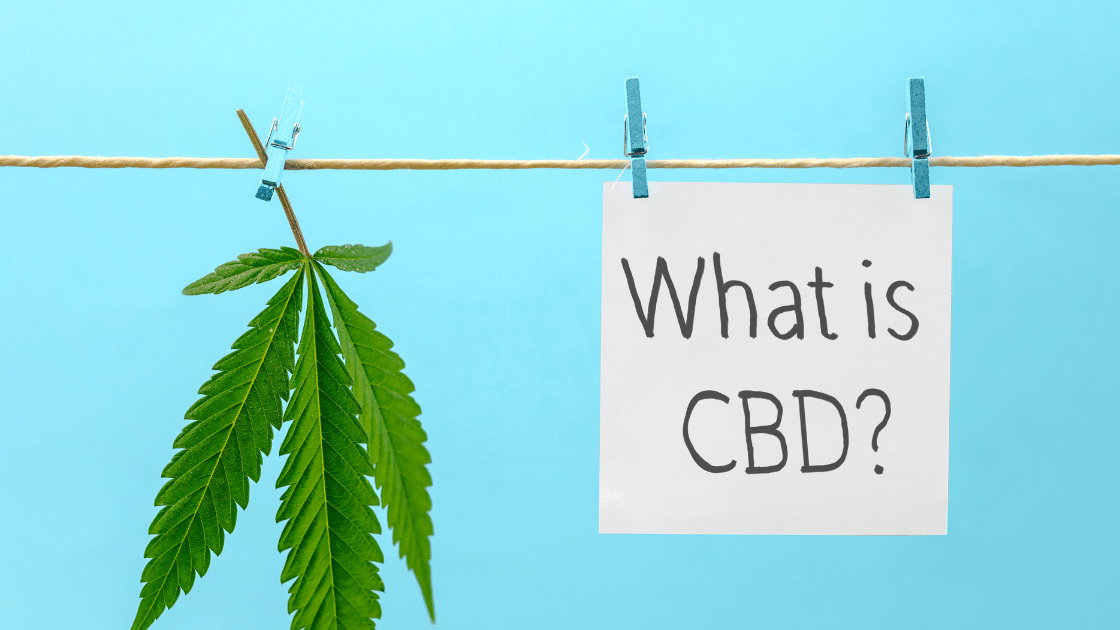Tetrahydrocannabinol (THC) and cannabidiol (CBD) are the two most common cannabinoids found in the cannabis plant. The former produces intoxicating effects, while the latter produces calming effects. Naturally, some newbie consumers are worried that they’ll ingest THC while consuming CBD products, whether due to random drug testing at work or the fear that they’ll experience THC’s intoxicating effects.
So, does CBD have THC in it? Do CBD products contain THC? Let’s explain.
Does CBD Have THC in It?
When talking about the cannabinoids THC and CBD, we need to mention that these are different chemical compounds that are part of the cannabis plant, so one isn’t contained in the other and vice versa. So the short answer would be that, no, CBD doesn’t contain any THC.
However, CBD products may contain some levels of THC in them, and these levels depend on the type of CBD product we’re talking about.
Types of CBD Products
To determine whether a CBD product contains THC or not, we need to look at what type of product we’re dealing with. For more information on the various types of CBD products, take a look at our previous article. CBD products can be divided into three categories:
- Full-spectrum (these products contain all the cannabinoids that are naturally found in cannabis, such as CBD, THC, and others, as well as all the terpenes);
- Broad-spectrum (these products contain all cannabinoids and terpenes, apart from THC);
- CBD isolate (these products only contain the isolated cannabinoid CBD, and no other cannabinoids, terpenes, or chemicals).
So, depending on which type of CBD product you’re consuming, it may or may not contain THC. We also have to mention that, for a CBD product to be federally legal, it must contain less than 0.3% THC, which is a negligible amount that doesn’t show up on drug testing and doesn’t produce intoxicating effects in consumers.
Hemp-Derived vs. Cannabis-Derived CBD
The next important aspect when looking at the THC content in a CBD product is whether the product is derived from the hemp plant or the marijuana plant.
As we mentioned, under federal law, hemp products can’t contain more than 0.3% THC in order to be sold as hemp. Due to the fact that industrial hemp was removed from the Controlled Substances Act, manufacturers need to comply with the federal guidelines to be able to sell their products legally. This means that CBD products labeled as hemp-derived shouldn’t contain more than 0.3% THC.
On the other hand, when CBD is extracted from marijuana, it can contain levels of THC that are higher than 0.3%. These products are generally consumed by medical marijuana patients and can be obtained only in a state that has legalized medical marijuana with a valid medical marijuana card or recreational cannabis.
If you’re unsure about the origin of the CBD in the product, it’s always a good idea to check the label. Remember that CBD products that originate from the hemp plant and are labeled as broad-spectrum or CBD isolate shouldn’t contain any THC. So, it’s a good idea to choose from those if you’re after a product that’s THC-free.
Does CBD Work Better Together With THC?
If you’re searching for a product that only contains CBD, you should opt for the products we’ve mentioned above. However, we need to mention that a little bit of THC may help "activate" or make CBD work better, while CBD may help mitigate some of the potential side effects of consuming high amounts of THC.
Consuming full-spectrum products induces what is known as the entourage effect, which is a result of combining different cannabis or hemp compounds that magnify the potential therapeutic benefits that come from consuming each cannabinoid on its own. In fact, CBD and THC balance each other out to boost the benefits of consuming these cannabinoids while subduing the side effects when consumed in moderation.
Will Consuming CBD Give You a Positive Drug Test?
It’s unlikely that consuming CBD products will result in a positive drug test, especially if the product is hemp-derived. Hemp-derived products should only contain THC lower than 0.3%, so you’re on the safe side. While you’ll be ok with the majority of hemp products, if you are concerned about passing a drug test, it's best to err on the side of caution and choose Broad-spectrum or CBD isolates as they don’t typically contain any THC. Always be sure to confirm cannabinoid content through a COA before purchasing though.
Final Thoughts
To sum up, CBD as a cannabinoid doesn’t contain THC, however, some CBD products can contain THC in one quantity or another. Generally, it depends on the type of product in question.
CBD products that are derived from the hemp plant can contain up to 0.3% THC. On the other hand, CBD derived from marijuana can contain different amounts of THC. So, if you’d like to use a product that’s THC free, opt for a broad-spectrum product or a CBD isolate, though these products may not give you the entourage effects that the combination of THC, CBD, other cannabinoids, and terpenes will.
It’s also important to check the label of the product before you purchase it, so you know exactly what it contains. The label will give you information about the:
- Amount of CBD and THC per serving
- Other ingredients
- Type of product (full-spectrum, broad-spectrum, or isolate)
- Manufacturer and distributor name
- Net weight
- Suggested use and serving size
- Batch/date code
- Expiration date




Leave a comment
This site is protected by reCAPTCHA and the Google Privacy Policy and Terms of Service apply.